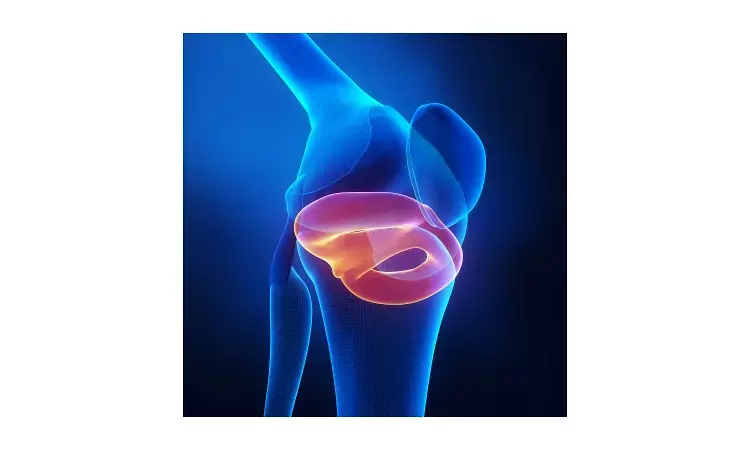- Home
- Medical news & Guidelines
- Anesthesiology
- Cardiology and CTVS
- Critical Care
- Dentistry
- Dermatology
- Diabetes and Endocrinology
- ENT
- Gastroenterology
- Medicine
- Nephrology
- Neurology
- Obstretics-Gynaecology
- Oncology
- Ophthalmology
- Orthopaedics
- Pediatrics-Neonatology
- Psychiatry
- Pulmonology
- Radiology
- Surgery
- Urology
- Laboratory Medicine
- Diet
- Nursing
- Paramedical
- Physiotherapy
- Health news
- Fact Check
- Bone Health Fact Check
- Brain Health Fact Check
- Cancer Related Fact Check
- Child Care Fact Check
- Dental and oral health fact check
- Diabetes and metabolic health fact check
- Diet and Nutrition Fact Check
- Eye and ENT Care Fact Check
- Fitness fact check
- Gut health fact check
- Heart health fact check
- Kidney health fact check
- Medical education fact check
- Men's health fact check
- Respiratory fact check
- Skin and hair care fact check
- Vaccine and Immunization fact check
- Women's health fact check
- AYUSH
- State News
- Andaman and Nicobar Islands
- Andhra Pradesh
- Arunachal Pradesh
- Assam
- Bihar
- Chandigarh
- Chattisgarh
- Dadra and Nagar Haveli
- Daman and Diu
- Delhi
- Goa
- Gujarat
- Haryana
- Himachal Pradesh
- Jammu & Kashmir
- Jharkhand
- Karnataka
- Kerala
- Ladakh
- Lakshadweep
- Madhya Pradesh
- Maharashtra
- Manipur
- Meghalaya
- Mizoram
- Nagaland
- Odisha
- Puducherry
- Punjab
- Rajasthan
- Sikkim
- Tamil Nadu
- Telangana
- Tripura
- Uttar Pradesh
- Uttrakhand
- West Bengal
- Medical Education
- Industry
Early Surgery not superior to conservative management for Meniscal Tears in Young Adults

The meniscus is a C-shaped piece of tough, rubbery cartilage that acts as a shock absorber between your shinbone and thighbone. A torn meniscus is one of the most common knee injuries. Surgery is commonly used to treat meniscal tears; however, to our knowledge, no randomized controlled trials (RCTs) have compared surgery with nonsurgical alternatives in young adults.
A randomized control trial in New England Journal of Medicine, hypothesized that early meniscal surgery would be superior to a strategy of exercise and education with the option of surgery later if needed.
The pragmatic parallel-group DREAM TRIAL, Danish RCT on Exercise versus Arthroscopic Meniscal Surgery for Young Adults) trial , we enrolled young adults (18-40 years of age) with magnetic resonance imaging verified meniscal tears eligible for surgery from seven Danish hospitals. Patients were randomly assigned (1:1) to surgery (partial meniscectomy or meniscal repair) or 12-week supervised exercise therapy and education with the option of surgery later if needed. The primary outcome was the difference in change from baseline to 12 months in the mean score of four Knee Injury and Osteoarthritis Outcome Score (KOOS4) subscales covering pain, symptoms, function in sport and recreation, and quality of life, ranging from 0 (worst) to 100 (best).
The results of the trial were
• A total of 121 young adults, in total, 107 participants (88%) completed the 12-month follow-up; 16 participants (26%) from the exercise group crossed over to surgery, while 8 (13%) from the surgery group did not undergo surgery.
• Intention-to-treat analysis showed no statistically significant difference in change between groups from baseline to 12 months in KOOS4 scores (19.2 vs. 16.4 in the surgery vs. exercise groups; adjusted mean difference, 5.4 [95% confidence interval, −0.7 to 11.4]).
• No difference in serious adverse events was observed (four vs. seven in the surgery and exercise groups, respectively; P=0.40). Per-protocol and as-treated analyses yielded similar results.
Researchers concluded that "Our results suggest that among young, active adults with meniscal tears, a strategy of early meniscal surgery is not superior to a strategy of exercise and education with the option of later surgery. Both groups experienced clinically relevant improvements in pain, function, and quality of life at 12 months, and one of four from the exercise group eventually had surgery."
Reference: https://doi.org/10.1056/EVIDoa2100038
Medical Dialogues consists of a team of passionate medical/scientific writers, led by doctors and healthcare researchers. Our team efforts to bring you updated and timely news about the important happenings of the medical and healthcare sector. Our editorial team can be reached at editorial@medicaldialogues.in.
Dr Kamal Kant Kohli-MBBS, DTCD- a chest specialist with more than 30 years of practice and a flair for writing clinical articles, Dr Kamal Kant Kohli joined Medical Dialogues as a Chief Editor of Medical News. Besides writing articles, as an editor, he proofreads and verifies all the medical content published on Medical Dialogues including those coming from journals, studies,medical conferences,guidelines etc. Email: drkohli@medicaldialogues.in. Contact no. 011-43720751


